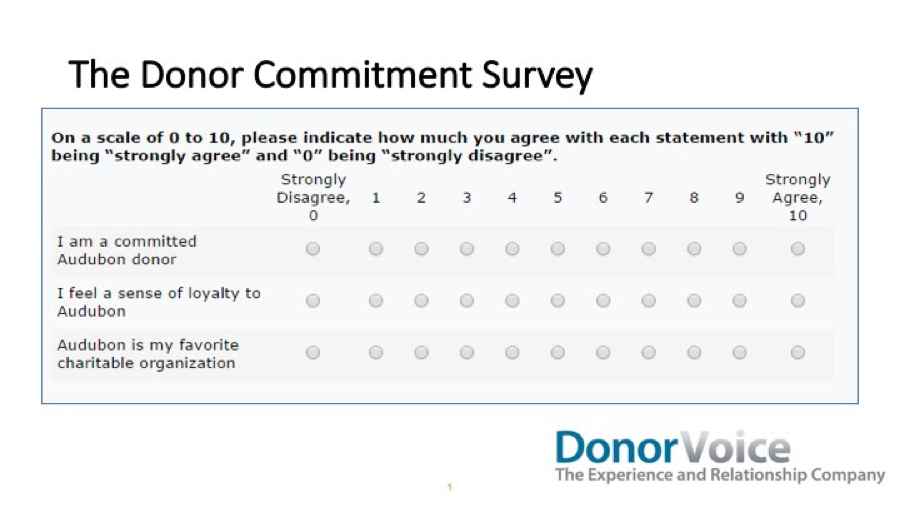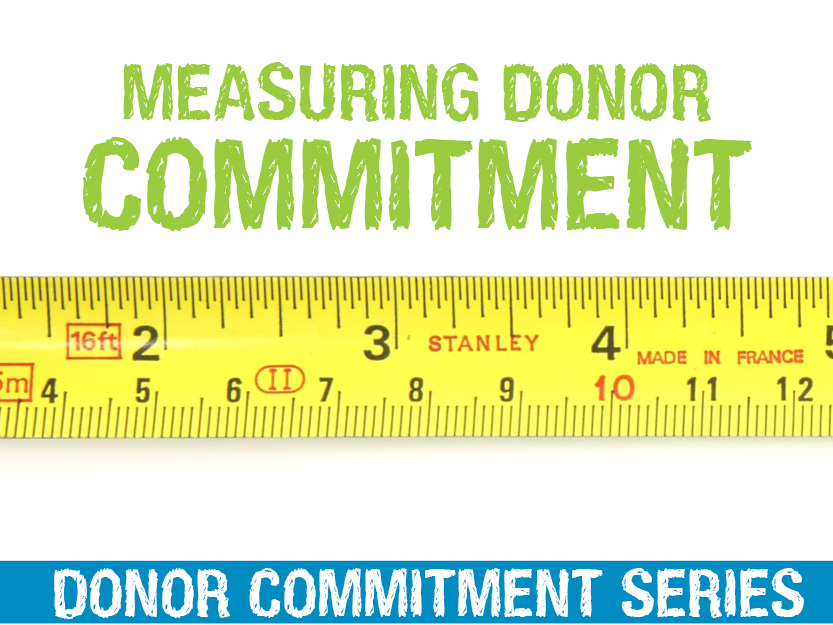If you’re reading this, it’s hard to imagine you don’t know the abysmal donor retention rates plaguing the nonprofit sector.
The Fundraising Effectiveness Project measured retention at 45.5% in 2017, the same as 2016.
If you worked in sales (and yes, fundraising is a form of sales whether you like it or not), you’d probably be fired if you lost more half of your customers each year.
Clearly, we’ve got a problem. And clearly, whatever we’re doing to fix it isn’t working.
Enter this blog series on Donor Commitment…
The more committed your donors, the more likely they are to give again and possibly give more over time.
And did you know that a 10% increase in your donor retention could yield up to 150-200% growth in revenue over the lifetime of your donors?
That sounds like an investment worth making, no?
Well, let’s start by helping you identify who on your donor list is most committed to your organization…
How to Identify Your Best Donors
Nonprofits often decide how and when to communicate with donors based on the donors’ past behavior…how much they’ve given, when, how often.
We do this, at least partly, because this is the information we have about our supporters. But it’s not necessarily the best indictor of what they’ll do (or not do!) in the future.
What if you could base your communications on how donors feel about your organization?
Thanks to the brilliant Roger Craver from The Agitator (among other claims to fame), you can…
Enter the DonorVoice Commitment Score.
Here’s how to calculate the donor commitment score for each of your supporters.
Ask your donors these three simple questions on a scale of 0 to 10 (10 is strongly agree, 0 is strongly disagree).
- I am a committed ORG NAME donor.
- I feel a sense of loyalty to ORG NAME.
- ORG NAME is my favorite charitable organization.

Once a donor has completed the survey, calculate their average response. For example, a donor whose answers were 8, 8, and 5 would have a score of 7.
Donors with the highest scores are most committed to you. They’re the ones most likely to increase their giving, donate frequently, be a monthly sustainer, tell their friends about you, and more.
Bottom line — put these folks at the top of your priority list and give them lots of love!
The Fine Print: Don’t Make these Mistakes
Before I sign off, I have a few final comments to help you avoid common missteps…
Altering this tool in any way could lead to inaccurate results. And the only thing worse than no data is bad data!
Some of these may seem like obvious points but I don’t want you to misunderstand anything.
- Do not change the questions in any way…the precise phrasing has been carefully studied and tested.
- Always ask all three questions together. (Again, studied and tested.)
- These surveys should NOT be done anonymously. This information is of no use to you if you don’t know who’s responding.
- This is not a research tool. The data is not meant to tell you the commitment score for your entire donor file. This score is for determining the commitment of each individual donor.
- You need to engage people directly to get this information. I’m talking email, direct mail, and/or phone. If someone doesn’t respond the first time, keep asking. You’ll get more responses whenever you do the survey. And over time, you’ll have a commitment score for more and more of your donors.
Still not convinced? Check out these results…
The aforementioned Roger Craver has used this survey on behalf of hundreds of organizations and tens of thousands of donors. So far it has produced 130% more net revenue over a 36-month period than any other score (such as the customer satisfaction index, net promoter score, etc).
Good luck!
And keep an eye out for next week’s post when we’ll look at how to evaluate your own donor relations work. See you then!



